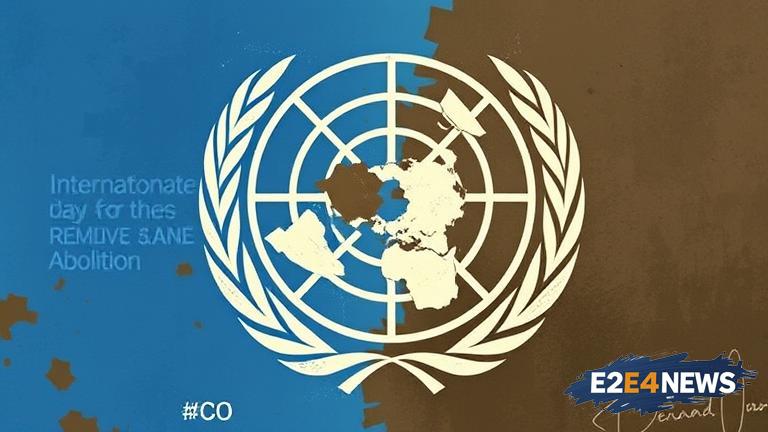The United Nations has observed the International Day for the Remembrance of the Slave Trade and Its Abolition, a day set aside to commemorate the victims of the transatlantic slave trade. This day is significant as it marks the anniversary of the uprising in Santo Domingo, which led to the eventual abolition of slavery in Haiti. The transatlantic slave trade was a brutal system that forcibly enslaved millions of Africans, transporting them to the Americas and other parts of the world. The slave trade was a major factor in the shaping of the modern world, with its impact still felt today. The United Nations has recognized the need to remember and honor the victims of this heinous crime against humanity. The International Day for the Remembrance of the Slave Trade and Its Abolition is an opportunity for people around the world to come together and reflect on the history of the slave trade. It is also a time to acknowledge the ongoing impact of slavery and the need for continued efforts to combat racism and discrimination. The day is observed on August 23rd of every year, and it is an important reminder of the need for international cooperation and solidarity in the fight against slavery and its legacy. The transatlantic slave trade was a complex and multifaceted system that involved the forced enslavement of millions of people. The slave trade was fueled by the demand for labor in the Americas, particularly in the plantation economies of the Caribbean and the southern United States. The slave trade was also driven by the desire for wealth and power, with many European powers competing for control of the slave trade. The impact of the slave trade was devastating, with millions of people forcibly enslaved and transported to the Americas. The conditions on the slave ships were brutal, with many people dying during the journey. Those who survived the journey were forced to work in harsh conditions, often under the threat of violence and punishment. The legacy of the slave trade can still be seen today, with many communities around the world continuing to feel the impact of slavery and racism. The International Day for the Remembrance of the Slave Trade and Its Abolition is an important opportunity for people to come together and reflect on this history. It is also a time to acknowledge the ongoing struggles of communities around the world and to recommit to the fight against slavery and racism. The United Nations has played an important role in promoting awareness and understanding of the slave trade and its legacy. The organization has also worked to promote international cooperation and solidarity in the fight against slavery and racism. The International Day for the Remembrance of the Slave Trade and Its Abolition is an important part of these efforts, and it serves as a reminder of the need for continued action and commitment to combating slavery and its legacy. The day is observed through a range of events and activities, including ceremonies, exhibitions, and educational programs. These events provide an opportunity for people to learn about the history of the slave trade and its legacy, and to reflect on the ongoing impact of slavery and racism. The International Day for the Remembrance of the Slave Trade and Its Abolition is an important reminder of the need for international cooperation and solidarity in the fight against slavery and its legacy. It is also a time to acknowledge the ongoing struggles of communities around the world and to recommit to the fight against slavery and racism. The United Nations will continue to play an important role in promoting awareness and understanding of the slave trade and its legacy, and in promoting international cooperation and solidarity in the fight against slavery and racism. The International Day for the Remembrance of the Slave Trade and Its Abolition is an important part of these efforts, and it serves as a reminder of the need for continued action and commitment to combating slavery and its legacy. The day is an opportunity for people around the world to come together and reflect on the history of the slave trade, and to acknowledge the ongoing impact of slavery and racism. It is also a time to recommit to the fight against slavery and racism, and to promote international cooperation and solidarity in this effort. The United Nations has recognized the importance of remembering and honoring the victims of the slave trade, and the International Day for the Remembrance of the Slave Trade and Its Abolition is an important part of this effort. The day serves as a reminder of the need for continued action and commitment to combating slavery and its legacy, and it provides an opportunity for people around the world to come together and reflect on the history of the slave trade.
